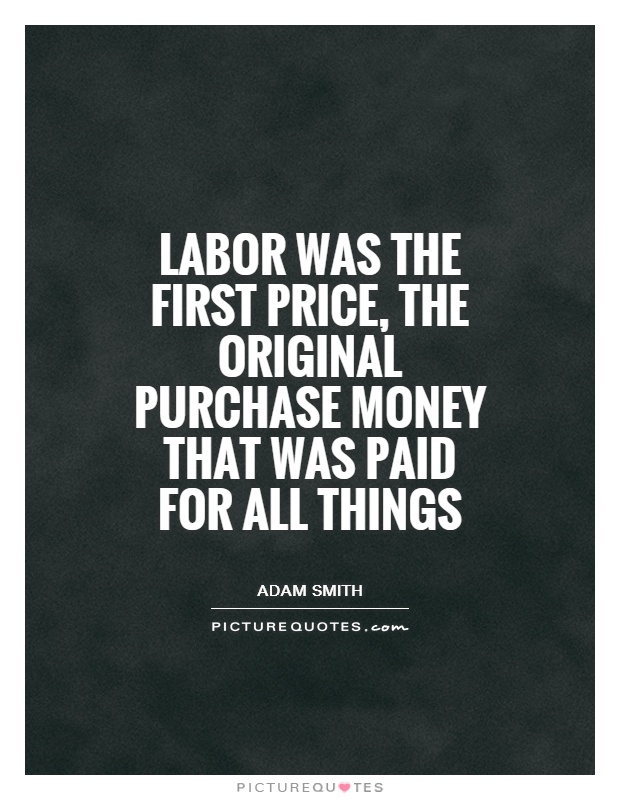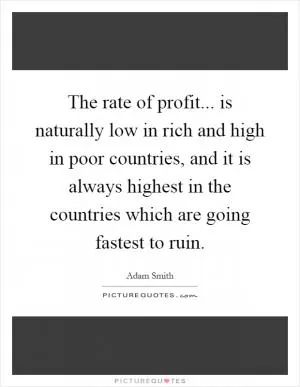Labor was the first price, the original purchase money that was paid for all things

Labor was the first price, the original purchase money that was paid for all things
In the context of Adam Smith's economic philosophy, the quote "Labor was the first price, the original purchase money that was paid for all things" holds significant meaning. Smith, often referred to as the father of modern economics, believed that labor was the foundation of wealth and prosperity in society. He argued that the value of goods and services was ultimately derived from the amount of labor required to produce them.Smith's famous work, "The Wealth of Nations," published in 1776, laid the groundwork for classical economics and emphasized the importance of labor in the production process. He believed that labor was the primary source of value in an economy, as it was through the efforts of workers that goods and services were created. In this sense, labor was the "first price" that was paid for all things, as it was the fundamental input that drove economic activity.
Smith's emphasis on the role of labor in the economy was a departure from the prevailing mercantilist views of his time, which focused on accumulating wealth through trade and hoarding precious metals. Instead, Smith argued that the true wealth of a nation lay in its ability to produce goods and services efficiently through the division of labor and specialization.
The concept of labor as the "original purchase money" also speaks to Smith's belief in the importance of fair wages and working conditions for workers. He argued that labor should be compensated fairly for its contribution to the production process, and that workers should be able to enjoy the fruits of their labor through higher wages and improved living standards.
Overall, Smith's quote underscores the central role of labor in the economy and highlights the importance of valuing and respecting the contributions of workers. By recognizing the significance of labor as the foundation of wealth and prosperity, Smith's economic philosophy continues to influence modern economic thought and policy.












 Friendship Quotes
Friendship Quotes Love Quotes
Love Quotes Life Quotes
Life Quotes Funny Quotes
Funny Quotes Motivational Quotes
Motivational Quotes Inspirational Quotes
Inspirational Quotes